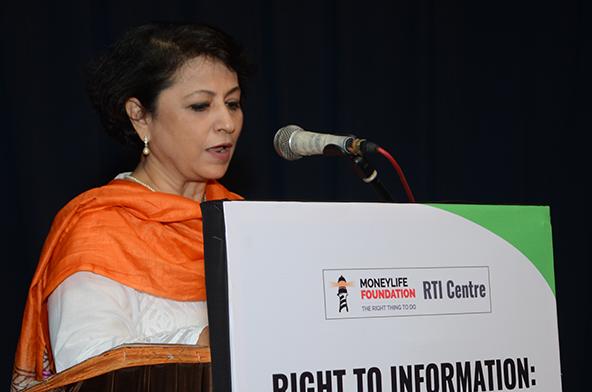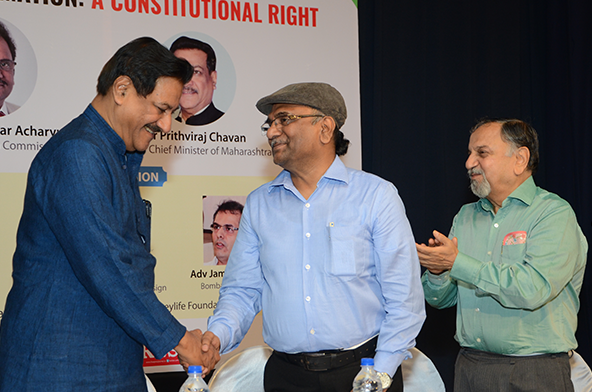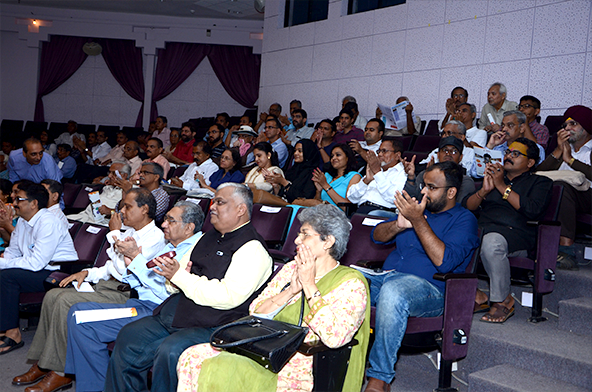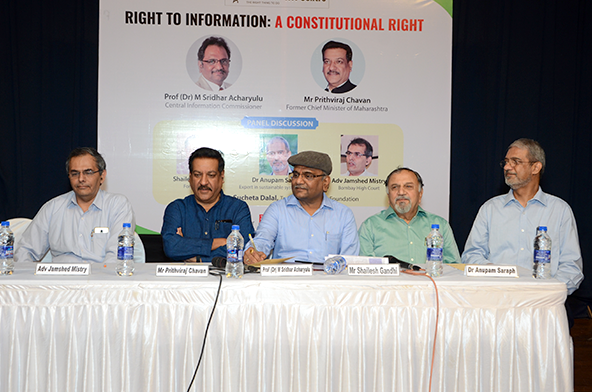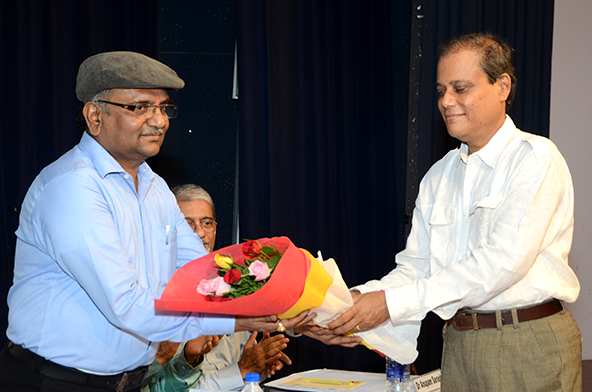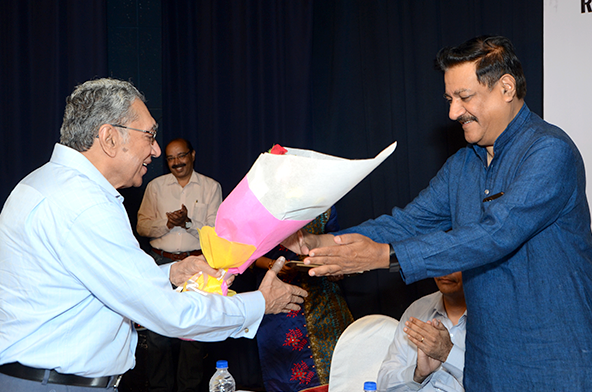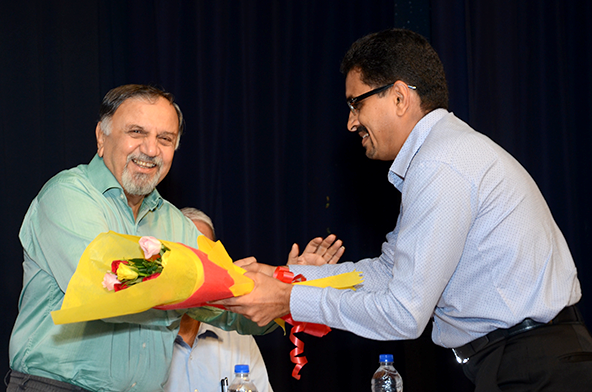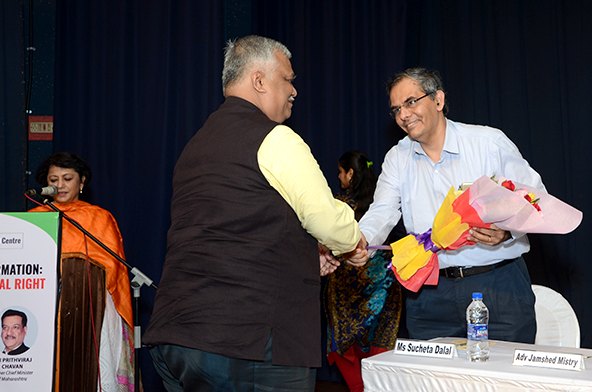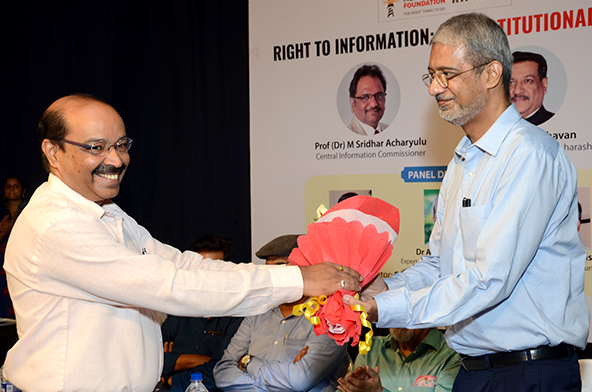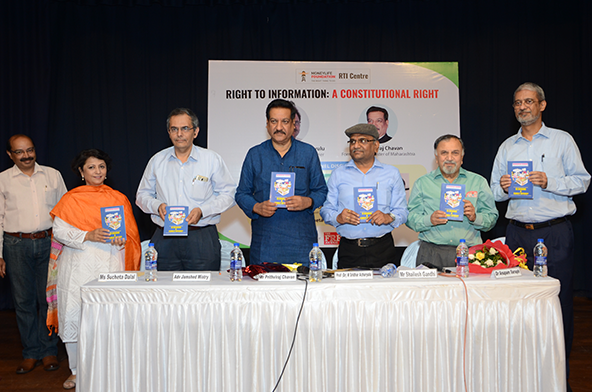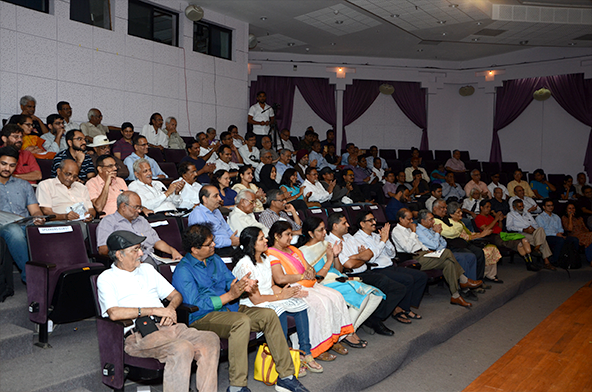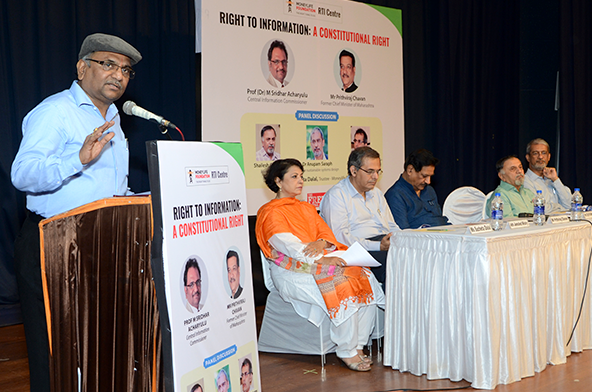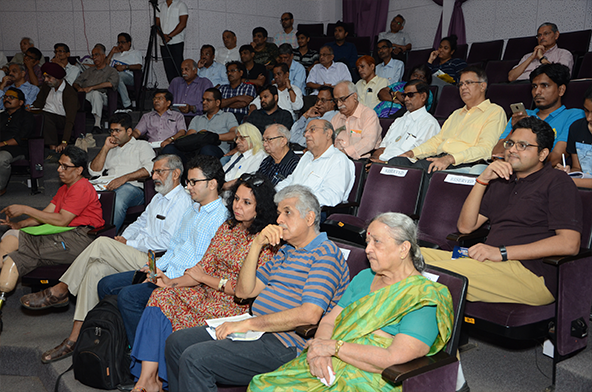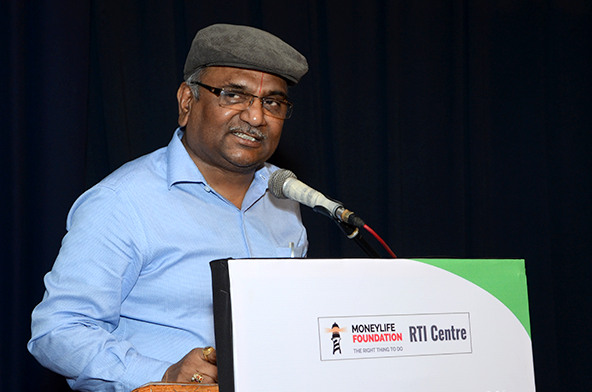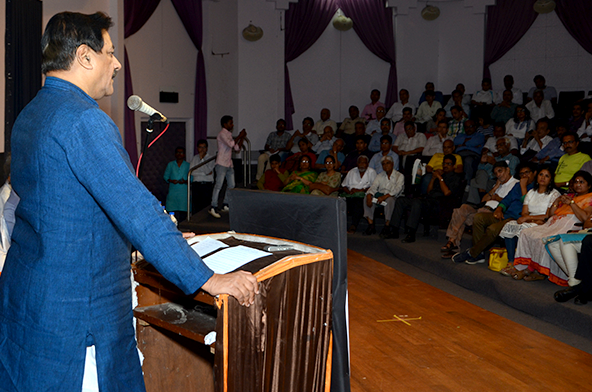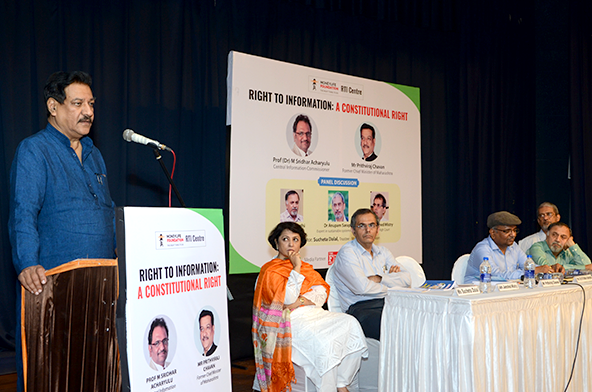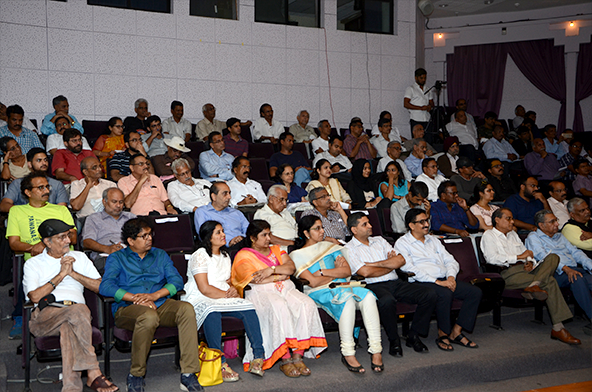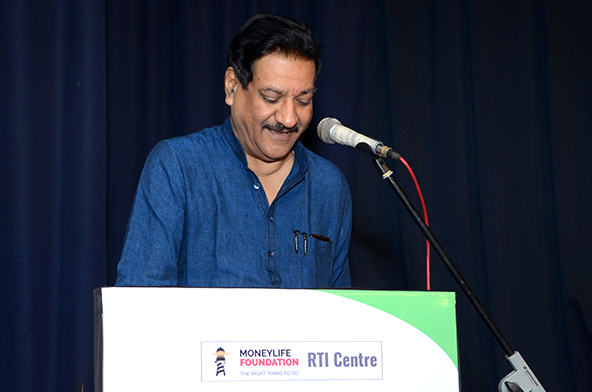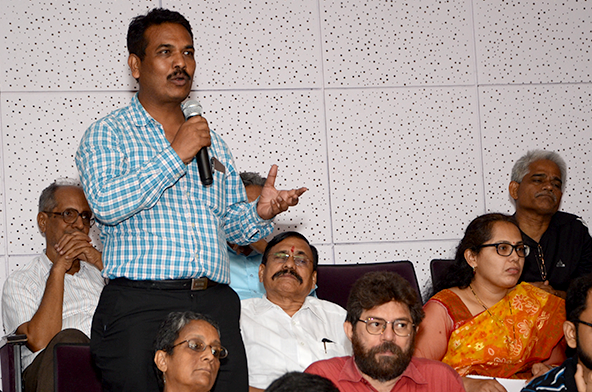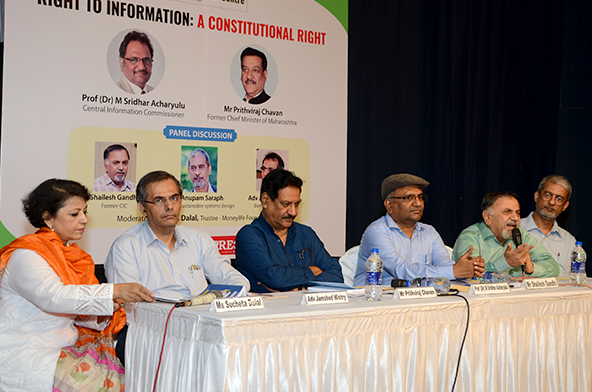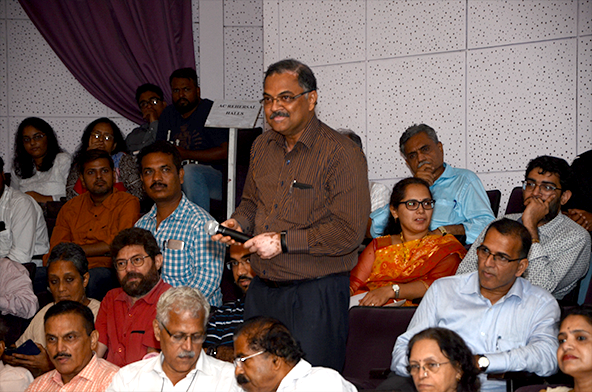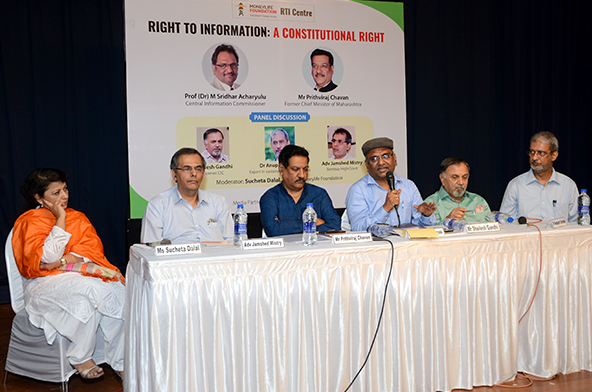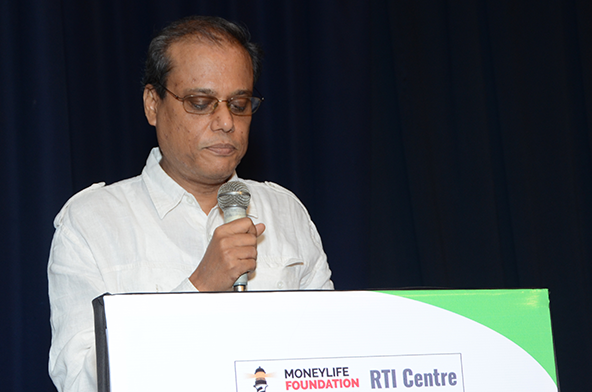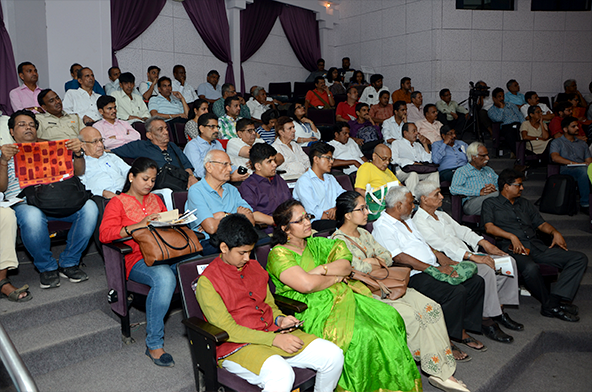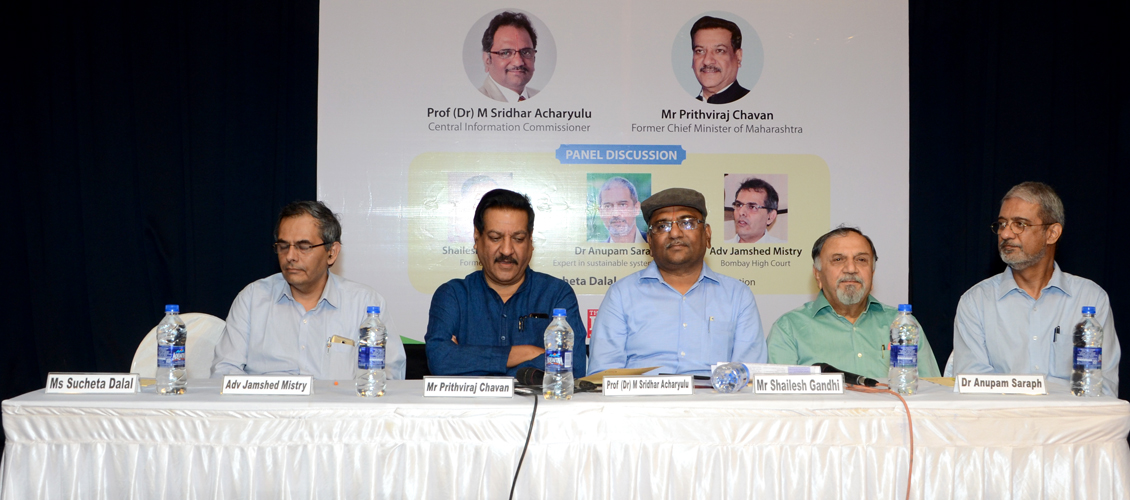
“Autonomy of the Central Information Commission (CIC) is under threat. In addition, the government is questioning citizen for asking information under the Right to Information (RTI) Act. As any as 60% of the cases in courts are filed by the government against people. Under these circumstances we need to save the RTI and thus democracy,” says Central Information Commissioner Prof Madabhushi Sridhar Acharyulu. He was speaking at a panel discussion on “Right to Information: A Constitutional Right” organised by Moneylife Foundation’s RTI Centre in Mumbai.
During the event Prithviraj Chavan, former Chief Minister of Maharashtra also launched of Prof Acharyulu’s book ‘RTI and misconduct of public servant: Is bribing a family affair’.
Terming the Right to Information as an uncompromising right, Prof Acharyulu, said that the RTI Act should be implemented in letter and spirit and for government officials, being public servants, there is no scope for any secrecy in their functioning.
Talking about the book, Prof Acharyulu said it analyses Section 8 (1) of the RTI Act quoting the judgments of several courts. The book was brought out in the wake of 60% RTI applications being rejected by using judgment of the Supreme Court in the Girish Ramachandra Deshpande case.
“This pocket pistol decision was used to shoot down RTIs. The Department of Personnel and Training (DoPT), which being a nodal agency to implement RTI has quickly issued an Office Memorandum (OM), directing the Public Information Officers to deny requests for such information,” he wrote in the preface of the book, adding, “The pocket pistol without bullets and this OM need to be buried.”
Mr Chavan, was Minister of State in the Prime Minister’s Office (PMO) and worked closely with the then PM on the original RTI Bill, including discussions with several prominent activists. He said, “At present, information is not being given to anybody because the government is determined to stifle the RTI Act. From the Prime Minister’s degree to bullet train or Rafael deal, no information is supplied under the RTI Act”.
Responding to the OM issued by the DoPT, Mr Chavan, who held the portfolio under the previous United Progressive Alliance (UPA) government says, “This particular OM can be reviewed by providing information on how this is leading to denial of information. It also can be taken to the courts or the Parliament.”
Participating in the panel discussion, Shailesh Gandhi, former Central Information Commissioner, said, “There is an attempt to destroy institutions. Several post are being kept vacant. Unless citizens raise their voices, these efforts to stifle RTI Act will continue. Our campaign on RTIBachao got response from four municipal corporations. However they will implement our suggestions to share in public domain information asked and reply given under RTI needs to be seen”.
Dr Anupam Saraph, trustee of Moneylife Foundation and an expert on identification system, says he does not any conflict between RTI and the Right to Privacy. “For any transaction there is a need for symmetry between the two parties. RTI and the information shared under the law brings the symmetry between a public authority and citizens,” he added.
Referring to the Girish Deshpande case, Advocate Jamshed Mistry, an invitee on the board of Moneylife Foundation, said, “One judgement cannot be used forever. Time changes and we can again go back to the court, which may set aside the previous judgement. One of the senior counsel is asking for live broadcast of court hearings. We are also seeking legal transcriptions from the court. Another issue is the courts can ask a public authority on how can it supply wrong information.”
The panel discussion was moderated by Sucheta Dalal, Founder-Trustee of Moneylife Foundation. She said, “The Right to Information law was meant to empower Indians and bring transparency in governance. It now appears to be losing steam with the number of queries going down mainly because of stone walling of information by officials and slow disposal of appeals. People are finding that getting information from the government is becoming difficult and in most cases the first roadblock are the information officers, who either don’t respond or provide incomplete information. Recently the government has also proposed to dilute the status of the CICs by downgrading their equivalence from that of the Supreme Court judges.”
Several RTI activists including, Vijay Kumbhar, Anil Galgali, Sulaiman Bhimani, Samir Zaveri as well as eminent citizens, activists from Pune and Mumbai participated in the discussion.


